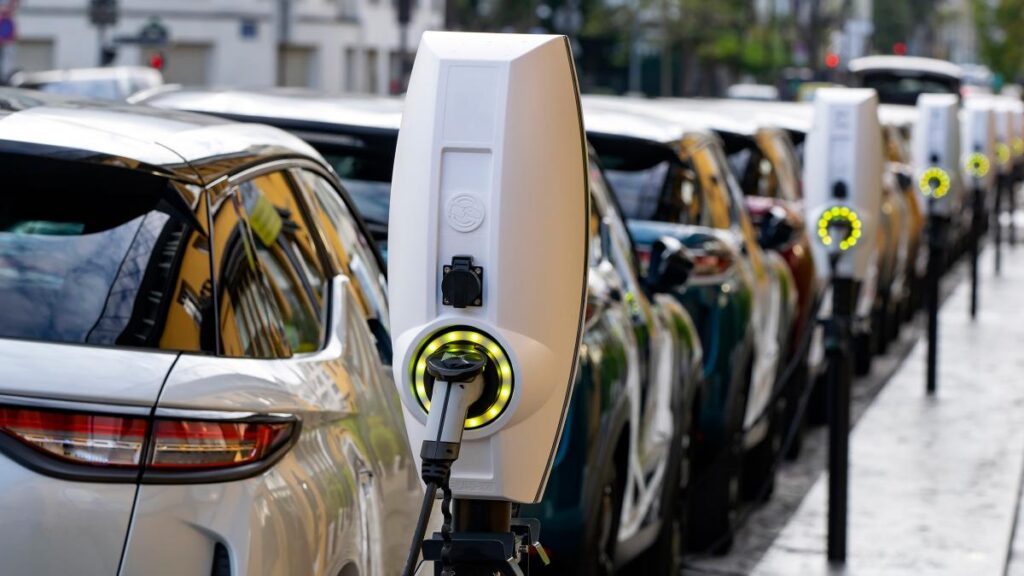Driving the Future: Exploring the Advancements in Electric EV Technology
by siteadmin

In recent years, electric vehicles (EVs) have gained significant traction as a viable and sustainable alternative to traditional gasoline-powered vehicles. With advancements in technology and a growing emphasis on environmental sustainability, EVs are revolutionizing the automotive industry. In this blog post, we’ll delve into the latest advancements in electric EV technology and how they are shaping the future of transportation.
Enhanced Battery Technology:
One of the most significant advancements in electric EV technology is the development of advanced battery systems. Lithium-ion batteries, which power most modern EVs, have undergone significant improvements in energy density, longevity, and charging speed.
Manufacturers are investing heavily in research and development to further enhance battery performance, reduce costs, and increase range. Innovations such as solid-state batteries and silicon anode technology hold the potential to revolutionize EV batteries, offering greater energy storage capacity and faster charging times.
Extended Range and Faster Charging:
Improved battery technology has led to significant advancements in EV range and charging infrastructure. Modern EVs can travel hundreds of miles on a single charge, making them practical options for long-distance travel.
Additionally, rapid charging technology allows EVs to replenish their battery levels quickly, reducing downtime and enhancing convenience for drivers. High-power charging networks, such as Tesla’s Supercharger network and third-party providers like Electrify America, are expanding rapidly, making long-distance travel in EVs more accessible and convenient than ever before.
Performance and Efficiency:
Electric EVs are known for their instant torque and smooth acceleration, providing a thrilling driving experience. As EV technology continues to advance, manufacturers are pushing the boundaries of performance and efficiency.
Innovations in motor design, power electronics, and regenerative braking systems are improving overall vehicle efficiency and energy recovery, maximizing range and reducing energy consumption. Additionally, advancements in aerodynamics and lightweight materials are further enhancing vehicle performance and efficiency.
Integration of AI and Connectivity:
The integration of artificial intelligence (AI) and connectivity features is transforming the driving experience in electric EVs. Advanced driver-assistance systems (ADAS) and autonomous driving capabilities are becoming increasingly common in modern EVs, enhancing safety and convenience for drivers.
Additionally, EVs are equipped with sophisticated onboard computer systems and connectivity features that enable over-the-air software updates, real-time diagnostics, and remote vehicle monitoring. These features improve vehicle performance, optimize energy usage, and provide drivers with valuable insights into their driving habits and battery health.
Sustainable Manufacturing and Lifecycle Management:
Beyond advancements in vehicle technology, manufacturers are also focusing on sustainable manufacturing processes and lifecycle management practices. The production of EVs is becoming more environmentally friendly, with manufacturers investing in renewable energy sources, recycling programs, and sustainable materials.
Additionally, efforts are underway to improve the recyclability and reuse of EV batteries, minimizing waste and reducing the environmental impact of end-of-life disposal. By prioritizing sustainability throughout the entire lifecycle of EVs, manufacturers are working towards a greener and more sustainable future for transportation.
The advancements in electric EV technology are driving a fundamental shift in the automotive industry, paving the way for a cleaner, greener, and more sustainable future. With improved battery technology, extended range, faster charging, enhanced performance, and connectivity features, EVs are becoming increasingly practical and appealing options for drivers around the world. As technology continues to evolve and adoption rates soar, electric EVs are poised to play a pivotal role in addressing climate change, reducing emissions, and creating a more sustainable transportation ecosystem for generations to come.
In recent years, electric vehicles (EVs) have gained significant traction as a viable and sustainable alternative to traditional gasoline-powered vehicles. With advancements in technology and a growing emphasis on environmental sustainability, EVs are revolutionizing the automotive industry. In this blog post, we’ll delve into the latest advancements in electric EV technology and how they are…
Recent Posts
- Abilene Electricians: Setting the Standard for Excellence in Electrical Services
- Abilene Electricians: Setting the Standard for Excellence in Electrical Services
- Eco-Friendly Power: How Solar Panels Are Changing the Game in NT
- Eco-Friendly Power: How Solar Panels Are Changing the Game in NT
- Driving the Future: Exploring the Advancements in Electric EV Technology
